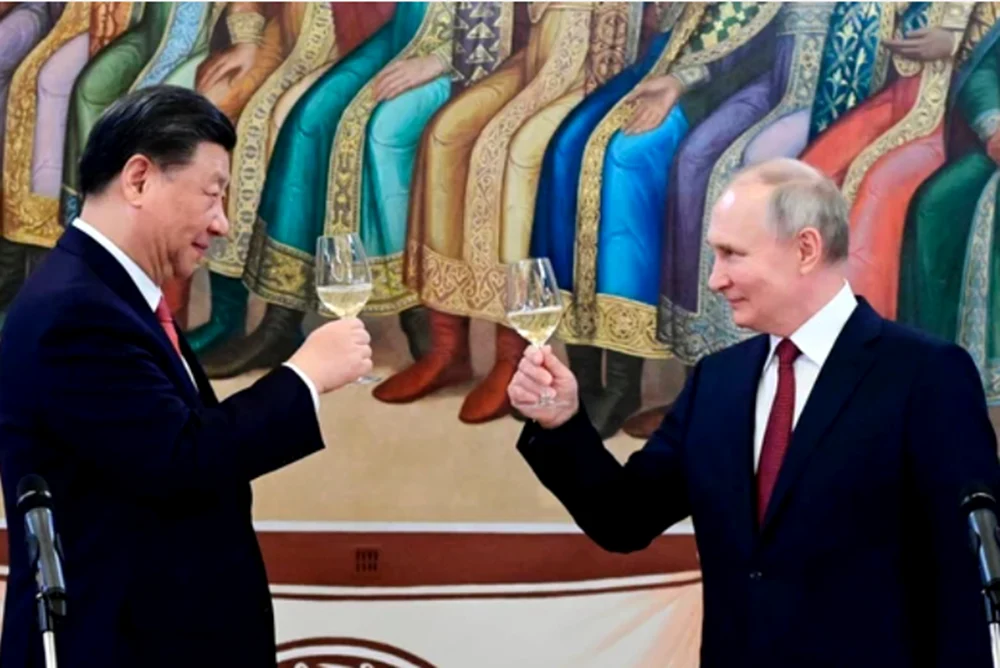Beijing and Moscow seem to have found a common goal: a divided and weakened Europe, caught between Russian military pressure and China’s economic influence. Behind seemingly isolated incidents, analysts see a coordinated strategy of attrition, primarily targeting transatlantic cohesion.
In recent weeks, Europe has been the scene of a wave of incidents with geopolitical stakes. Drone flights have disrupted civil air traffic, Russian military aircraft have violated Estonian airspace, and Moscow’s agents have unsuccessfully tried to influence the elections in the Republic of Moldova. In August, Russia allegedly jammed the navigation signals of the plane of the President of the European Council, Ursula von der Leyen.
In parallel, communication cables in the Baltic Sea have been cut, underwater networks in the Atlantic have been monitored by suspicious ships, and tensions in the Balkans have been carefully fueled. All these events paint the picture of a “hybrid guerrilla” that Vladimir Putin has been waging against the continent for years.
An old strategy, with new targets
Professor Hal Brands, a Bloomberg columnist, writes that Moscow’s strategy has several layers: “It is a form of hybrid warfare aimed at punishing Europe for the support given to Ukraine, but also discouraging any idea of European military intervention after a possible armistice. The ultimate goal: weakening NATO’s eastern flank and breaking the link between Europe and the United States.”
Brands warns that “Moscow’s golden dream remains the same: separating Europe from America”. And with “an ambivalent Atlanticist” in the White House, Russia is causing calculated chaos on the continent, betting on a weak reaction from Washington. “If the US shifts its attention elsewhere, an insufficiently armed Europe could be left alone in front of the Kremlin,” the expert notes.
Beijing, the Kremlin’s silent support
While Russia presses militarily, China operates quietly, but no less efficiently. Chinese ships have been involved in incidents in the Baltic Sea, and cyber attacks from networks controlled by Beijing have multiplied. Western officials increasingly speak of an “informational alliance” between Russia and China, which uses disinformation as a strategic weapon.
China cultivates economic relations with the more vulnerable countries in southeastern Europe – Greece, Serbia, Hungary – trying to create a “silk curtain” that cuts the continent in two: a rich Europe loyal to the West in the north and west, and a Chinese sphere of influence in the south and east.
Details, HERE

